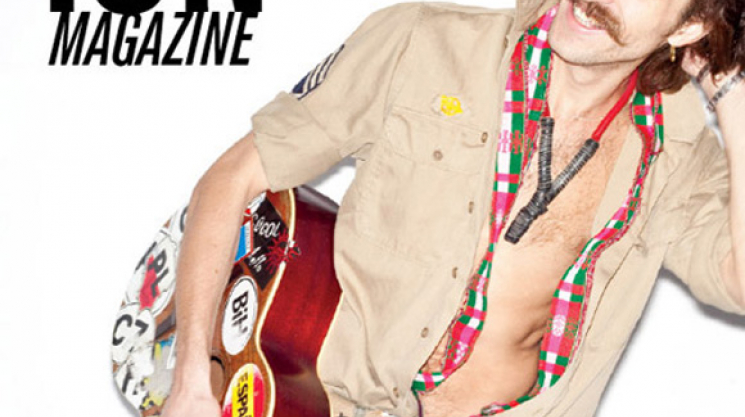
Mon, 07/05/2010 - 00:00 by Douglas Haddow
This month’s cover features Eugene Hütz—actor, DJ, and front man for the gypsy-punk band Gogol Bordello. Originally hailing from a small town near Kiev, Eugene fled Ukraine after learning of the Chernobyl disaster just up river from his home. After six years spent in refugee camps throughout Eastern Europe, he arrived in the U.S. as a political refugee. He has since released six albums with Gogol Bordello and one with his experimental side project J.U.F., been the subject of two documentaries, acted in three films, and had one film based on him. He has performed on stages ranging from the Tate Modern in London, to Lollapalooza and has dabbled briefly as a model in New York’s fashion world. He’s befriended and collaborated with the likes of Madonna, Elijah Wood, and Russian Gypsy guitar sensation Sasha Kolpakov. He also has a very nice moustache. Blessed with equal parts talent, charisma, luck, and affable insanity, Eugene continues along his wandering road to success. Gogol Bordello just made their major label debut with the Rick Rubin-helmed Trans-Continental Hustle.
Can you tell me how the collaboration with Rick Rubin came about for this record, Trans-Continental Hustle?
Well, Tom Morello—who has been a good friend and big supporter of Gogol Bordello for years—started bringing Rick to our shows like three or four years ago actually. And so, I think it was the third show when I actually met Rick backstage in LA. Basically just introduced ourselves, but it kind of picked up pretty quickly. Shortly afterwards I was already in Rick’s house showing him my new songs. I think only some couple weeks or maybe a month went by. It was super exciting because Rick has been known as a major force in preserving the art of songwriting.
The new album is made up of a surprising number of love songs. And I understand that your choice to relocate from New York to Rio de Janeiro was inspired by a woman. Sounds like you may have found your muse?
[Laughs] Yes. My strongest muse. Actually many of those songs had already existed in some form. Working with Rick helped bring those out.
What was your biggest surprise working with Rick?
Well, nothing comes as a surprise when you work with somebody with such a high intelligence—not only musical but literary and emotional intelligence. Of course Rick was super important in the rock and rap world, but it did not come to me a surprise that he was listening to Nusrat Fateh Ali Khan or was interested in Gregorian chanting, y’know? There was nothing surprising about it and in the process of getting to know each other and working a lot, that’s what we did a lot… just listen to music, endlessly. And our process kind of consisted of me going to Brazil or on tour and coming back to Rick’s house every two or three months with a new batch of songs. And what excited me was that he wasn’t scared that every time I see him I have like 20 new songs. The band is pretty scared of that, usually.
Being a band with a grassroots following, I imagine there are fans who perceive Gogol Bordello’s signing to American Recordings, as a push toward the proverbial mainstream. Have you encountered any criticism for it?
Not really, man. I mean, I’ve never seen it like that to start with. It’s like—I hate to bum you out but the Eighties are over. Back then everything was clear-cut and you had the plastic stupid façade of mainstream and then you had the underground camp. You had Alternative Tentacles and Dischord Records going strong. But everything has disintegrated in the last two decades and there are many artists that don’t fit in either camp, y’know. Signing with American Recordings was primarily about signing with Rick Rubin. That’s the move we were aiming to make.
Gogol Bordello doesn’t seem like the kind of band that formulates a detailed plan for success, and yet the past six years or so you’ve become more and more successful and have worked with some pretty high profile people. What do you attribute this to?
We’ve always just wanted to do what we love, and fortunately things are just taking their course. I’ve always felt like we have had our own destiny. Ever since I was young and I would play my songs… people would be interested. So I always felt that was the direction I should go. We are the first people from Eastern Europe that have been taken seriously abroad here. There is no manual on how to deal with it. We’re making it up as we go along but we’re very committed to the quality of our music.
Let’s talk a bit about your endeavours outside of music, as a model and an actor. I get the sense that it gets your quills up a bit when people start discussing your previous experience in the fashion world.
[Laughs] Not really. It’s true that in the early years, basically our first recognition came from the art world and we were spending lots of time flying around to play in galleries and museums and that quickly crossed over into the fashion world. That was just something I started getting irritated with because I started getting interviewed as a fashion icon and this kind of bullshit.
What’s your opinion on fashion as an art form?
Well, fashion is basically one of the lower forms of art. I don’t detest fashion. It’s just that the importance is blown out of proportion. Most fashion has become institutionalized elitism. Personally, I don’t give a fuck about fashion. That’s not to say I don’t appreciate if somebody whips some combination out that I’ve never seen before. Fashion is great when it is spontaneous and upbeat, or from somebody whose aesthetic about fashion is very artistic and solid like, say, Yohji Yamamoto.
You’ve also said you don’t care much for acting.
This is not entirely true. I enjoy acting. But there are many things that have to feel right. Many things have to come together. It has to be the right kind of story and with integrity and the right group of people. I like very much when it’s like a gang. Like a gang mentality—kind of like being in a band.
Do you have acting gigs on the horizon?
Well, with film projects you can’t really say too much about them until it’s for sure they are going to happen. I’m fortunate that some of my favourite directors have communicated that they are fans of Gogol Bordello’s music… like Emir Kustirica, Jim Jarmusch, and Jonathan Demme. Upon meeting those amazing directors and finding out that they find my music and character inspiring gives me a lot of optimism for cinema-future.
Is there such thing as an ultimate goal or ultimate success for Eugene Hütz?
Well, I’m a big believer in Eastern philosophy. That ultimate goal and final point are very Western ideas. Frankly, I don’t know what the fuck they mean. It’s like saying the goal of life is death. The movement through time and space… that’s the goal. Some Western poets and artists are aware of that too. There’s a great Bukowski title: What Matters Most is How You Well You Walk Through the Fire. That’s that my friend. It’s how well you navigate through time and space. If you navigate great it’ll bring you to the goal that needs to be. I think that is why gypsy mentality and gypsy spirit and psychology is so married to a moment and celebration of the moment. The roots of it are in India… in that Eastern philosophy. It all comes from that old-soul philosophy and way of life.
Why do you think Western culture has such a romantic intrigue with gypsy culture when they are so entrenched in such an opposing philosophy?
Well, it’s a very young culture. Comparatively, it’s really in the baby stages. The song “Rise the Knowledge” on the new album is precisely about that. It’s about Eastern knowledge coming to the rescue.
I came across a quote from you in an interview you did for the UK paper The Independent which stated: “You’ll never find refuge in nostalgia: I think it’s just a form of laziness.” Do you feel that will still apply when you look back on this period your life, say, 25 years from now?
Big-time, man. I mean, the idea of nostalgia is very much a part of the Western condition. It’s also been employed as a big business by capitalists milking people’s weaknesses—a form of mental laziness. People are chasing the wrong things. It seems people are either constantly aiming towards some goal that they think will finally free them, or they are taking comfort in things that have already happened. It’s this doomed way of thinking that the best time in their life has either already happened, or that it never will happen, y’know? So, I’m not really a fan of that. It’s not about arriving anywhere, or dwelling on all the places you’ve been. It’s about the cruising.
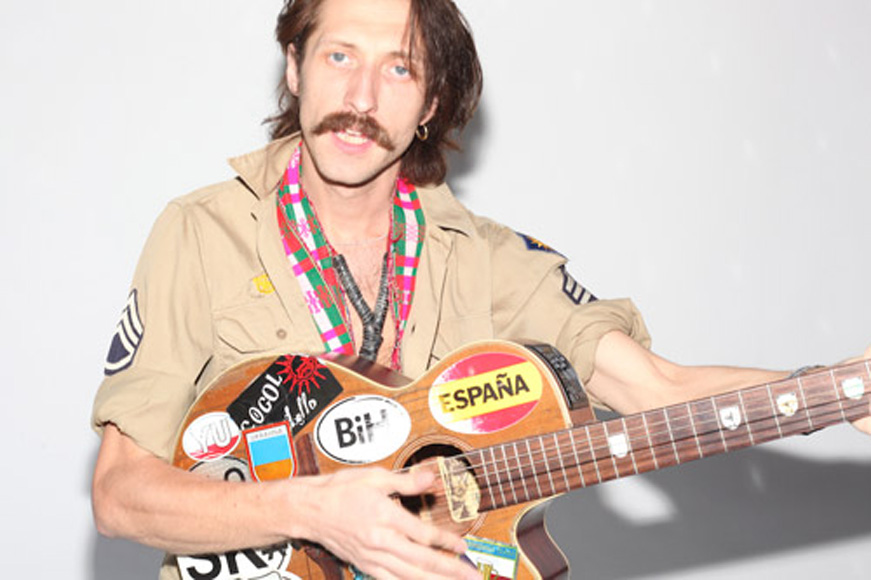
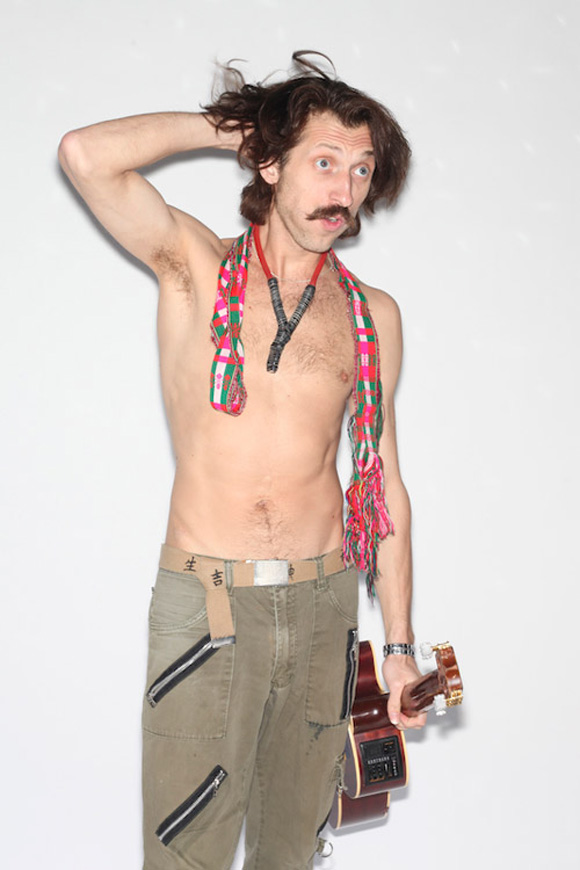
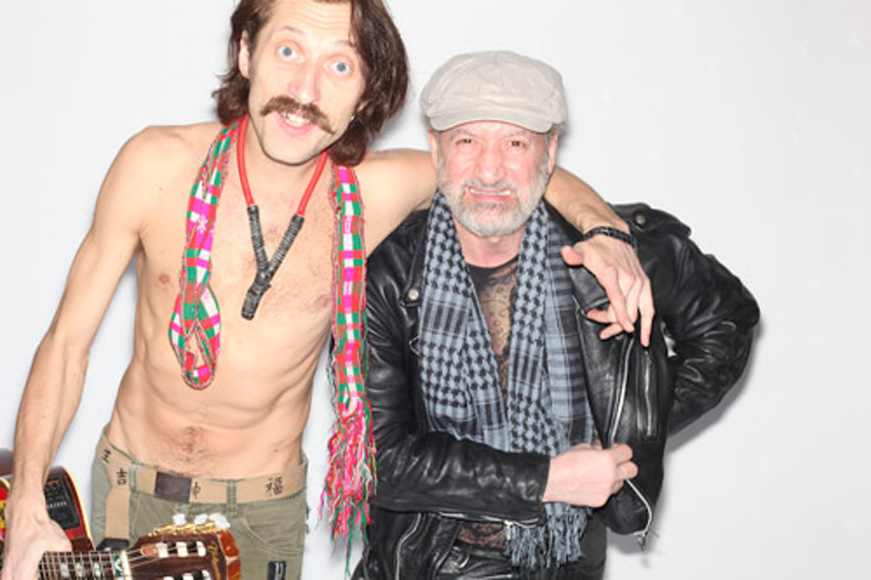
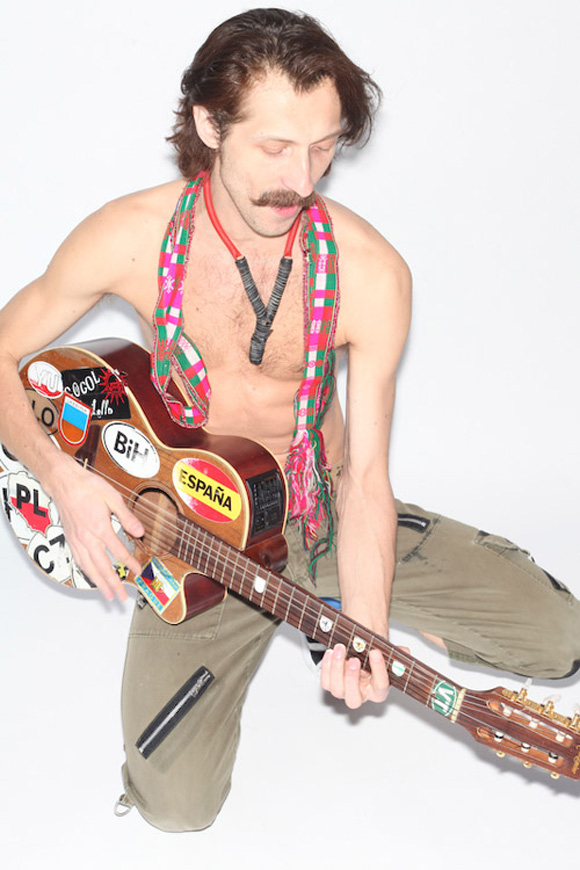
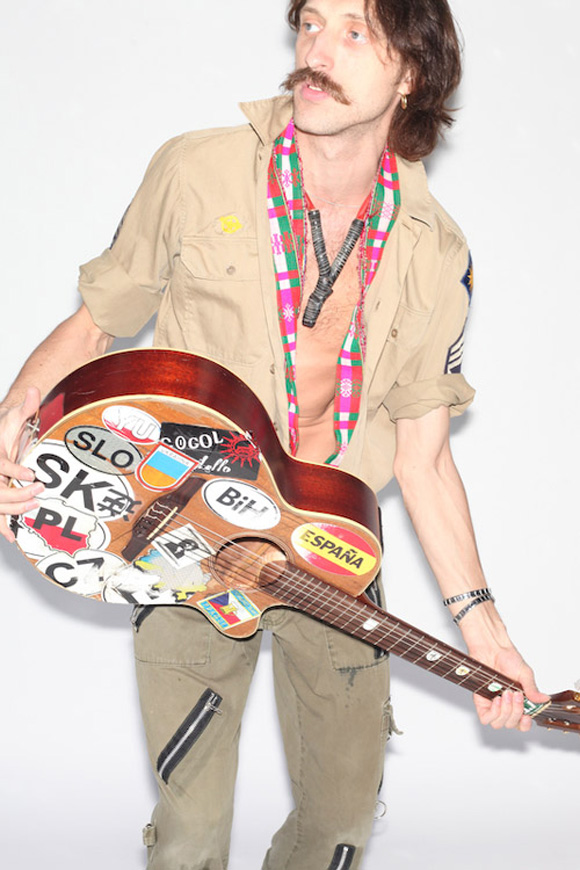





Add comment